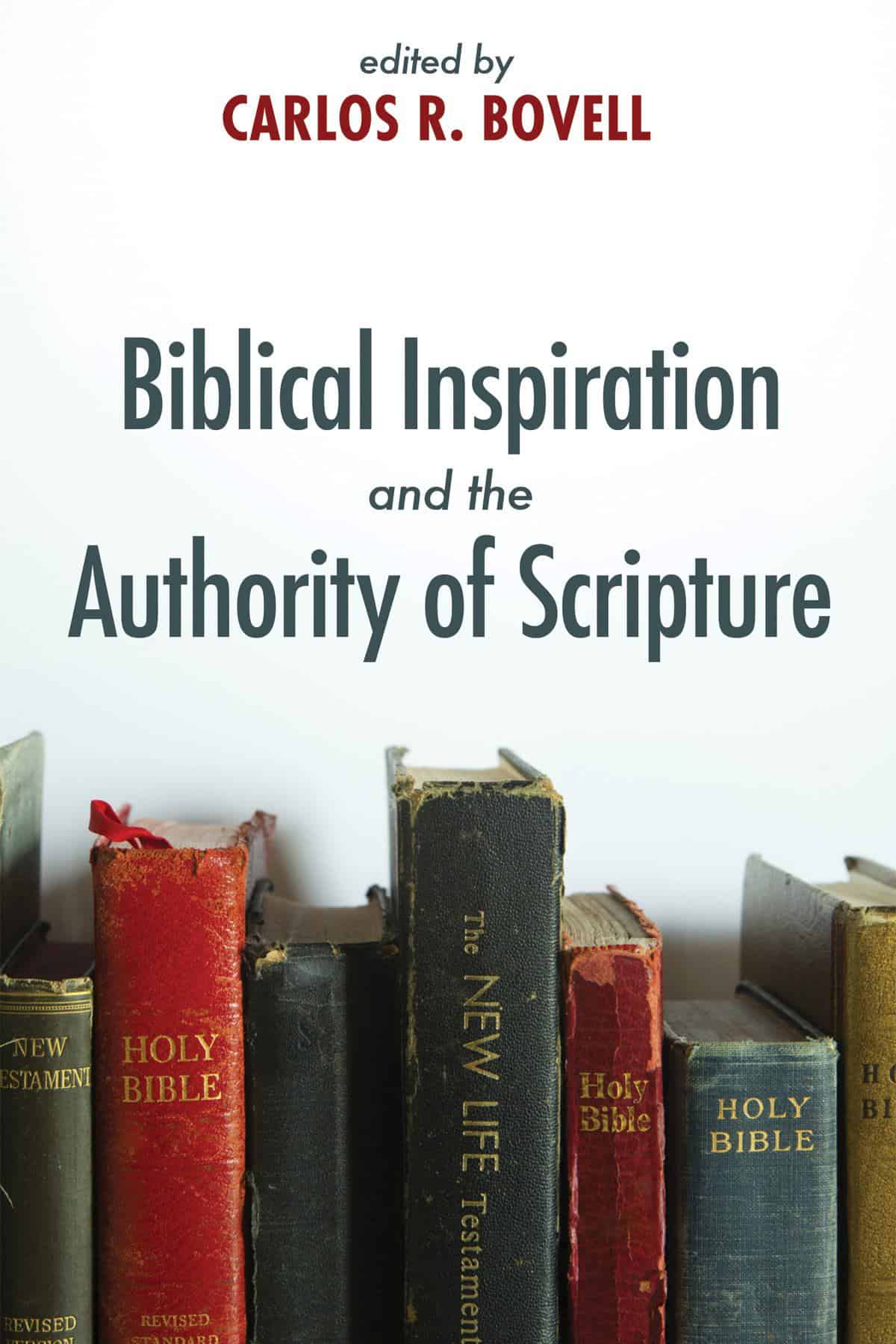 Today’s guest post is by Carlos Bovell about his new book, Biblical Inspiration and the Authority of Scripture
Today’s guest post is by Carlos Bovell about his new book, Biblical Inspiration and the Authority of Scripture.
Bovell, a graduate of Westminster Theological Seminary and The Institute for Christian Studies, Toronto, is a frequent contributor to this blog (for a recent post go here or just search for Bovell). He is the author of Inerrancy and the Spiritual Formation of Younger Evangelicals (2007), By Good and Necessary Consequence: A Preliminary Genealogy of Biblical Foundationalism (2009), an edited volume, Interdisciplinary Perspectives on the Authority of Scripture (2011), and Rehabilitating Inerrancy in a Culture of Fear (2012).
***********
“The trouble with children, of course, is that they want to know what’s real and what’s just a story. I dread the day when my daughter asks me if the stories in the Bible are true.”
So laments Ruth Graham in a recent Slate article on the “Nones” (people who consider themselves spiritual but do not identify with any specific religion).
It is a sad commentary on contemporary American Christianity if, of all the fears that can grip a parent over raising a child to be spiritual, the problem of whether the Bible stories are true is still at the top of the list.
Isn’t it strange that even for a “None-adjacent” (as she calls herself), the historicity of Bible stories is thought to be the deciding factor for whether Christianity “turns out to mean nothing at all”? Doesn’t this indicate that somewhere along the way in American religiosity the Bible has been vested with too much authority?
I would say so. But vested with authority by whom and what kind of authority is the Bible thought to have? Evangelical theologians have insisted for generations that the Bible itself proclaims its own authority.
In my new book, Biblical Inspiration and the Authority of Scripture (Wipf and Stock), I suggest considering something different. I propose that believers are the ones who vest the Bible with authority, and not only that: filled with the Spirit, we are the ones who actually inspire it.
I realize to some this will sound like the most heterodox thing someone can say, but I think if you take look at the history of the interpretation of scripture and how the NT writers used the OT to understand Jesus’ life and ministry, the idea becomes not as far-fetched as it may at first seem.
After all, theology textbooks are not afraid to talk about the notion of biblical “illumination.” Illumination refers to the work of the Holy Spirit in bringing believers to a saving understanding of what they read in the Bible. Evangelical authors, on the whole, already acknowledge a mechanism for the Holy Spirit to help readers and hearers of the Word of God understand the meaning of the words they engage in scripture.
But what if the same textbook authors are wrong to distinguish “illumination” from “inspiration” and would have been better off including illumination as a facet of the elongated process of biblical inspiration?
To help find out, I spent several years trying to articulate just such a position and when satisfied, contacted a group of established scholars to look over what I came up with and send me critical responses expressing their reactions.
Some readers who may be familiar with other posts I’ve written will recall how I firmly believe that the work needing to be done most by evangelicals cannot be properly carried out within evangelicalism. So I tried deliberately to correspond with mostly authors who had really nothing to lose, as it were, when it came to the Bible’s inspiration.
The feedback I received was mainly positive. There were some criticisms, to be sure, but on the whole the scholars involved were far more interested in trying to get something like my position to actually work. The roundtable discussion worked out into the following chapters:
Biblical Inspiration
All Scripture is Hermeneutically God-Breathed—Carlos R. Bovell
Responses
The Doctrine of Inspiration and the Dead Sea Scrolls—George J. Brooke
What is a Doctrine of Scriptural Inspiration For?—Richard S. Briggs
An “Inspired” Theory of Truth and a Pluralism Worthy of God—Mark S. McLeod-Harrison
The Authority of Scripture
The External Authority of Scripture—Carlos R. Bovell
The Internal Authority of Scripture—Carlos R. Bovell
Responses
The Authority of Sacred Scriptures—J. Harold Ellens
A “Reflexive Trust” in the Authority of Scripture—Holly Beers
Jesus’ Post-Resurrection Appearances in the Light of Full-Bodied Spirit Materializations—Clint Tibbs
Postscript
The Bible and Seminary Experience: We Need to Do More for Our Students—Carlos R. Bovell
My prayer is that with this new book, in conjunction with previous work I’ve done and the great work that many others are also doing, evangelical students can be encouraged to finally grow out of this phase of American evangelical Christian spirituality where their community’s greatest fear is that their kids will someday ask whether the Bible stories are true.
If one espouses a “high” view of scripture or a “low” view of scripture (or something in between), my hope remains the same, that they all can come to learn, as the author of Hebrews did, that God indeed has spoken to us—and that he continues to speak—through his Son.

